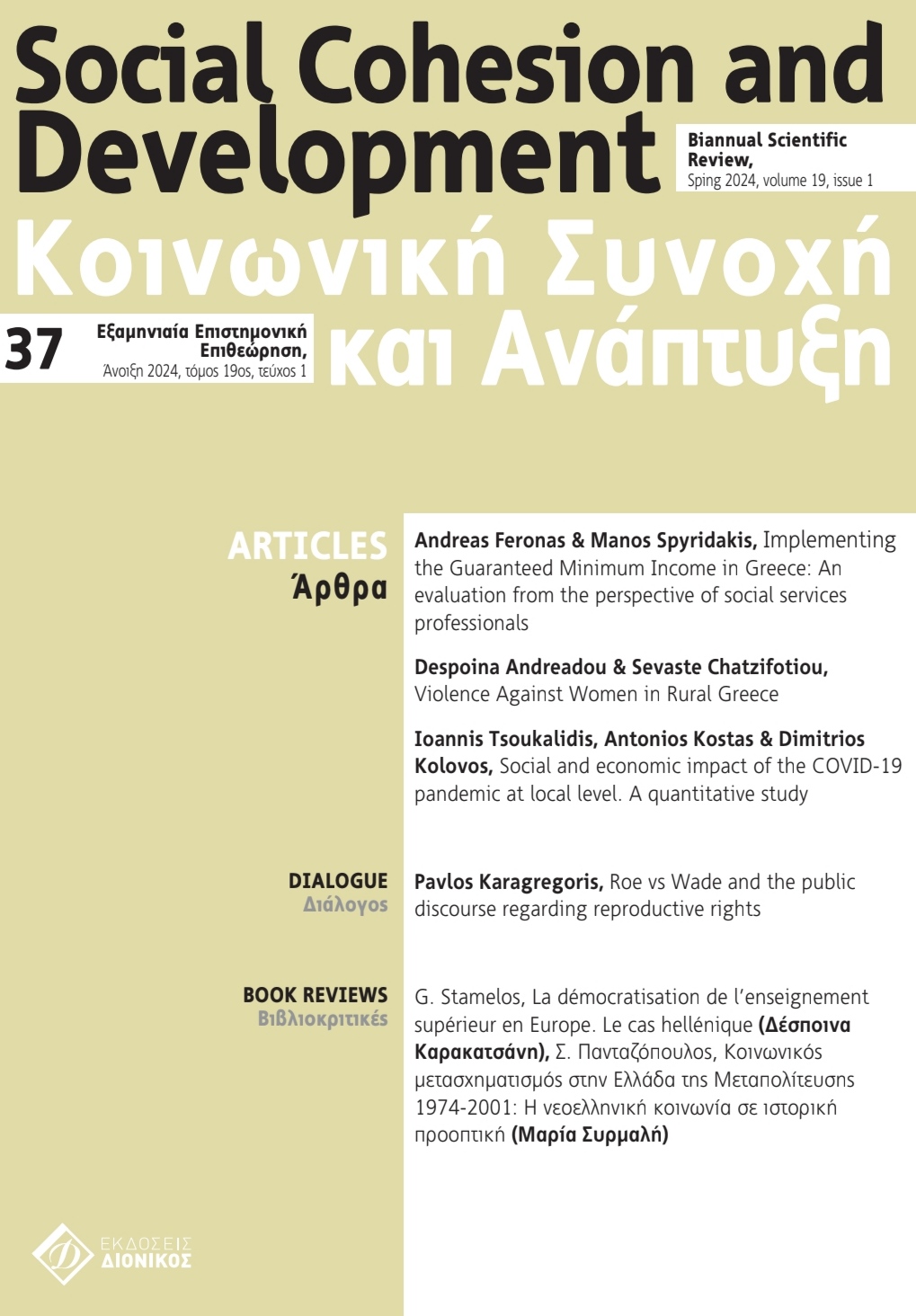Roe vs Wade and the public discourse regarding reproductive rights
Abstract
The following text aims to provide a socio-political analysis regarding the right to an abortion on the United States. Via the legal arguments of the scholars supporting the Originalist interpretation of the U.S constitution, it aims to understand the overturning of Roe v. Wade, which guarantees abortion as a right. However, this position isn't supportive of the limitation of women's reproductive rights but aims to transfer the decision-making process from the judicial to the legislative branch (especially on the state level). This case will be assisted through the utilization of modern arguments in favor of women's rights, the necessity of democratic dialogue and involvement with issues that pertain to human rights in liberal democracies and by the reasoning provided in Jurgen Habermas'
essay «The future of human nature», which will strengthen the sentiment that in a democracy the citizens via their representatives should be the ones that decide about crucial life and death matters.
Article Details
- How to Cite
-
Karagrigoris, P. (2024). Roe vs Wade and the public discourse regarding reproductive rights. Social Cohesion and Development, 19(1), 61–71. https://doi.org/10.12681/scad.39746
- Section
- Dialogue

This work is licensed under a Creative Commons Attribution-NonCommercial-ShareAlike 4.0 International License.
Authors who publish with this journal agree to the following terms:
- Authors retain copyright and grant the journal right of first publication with the work simultaneously licensed under a Creative Commons Attribution Non-Commercial License that allows others to share the work with an acknowledgement of the work's authorship and initial publication in this journal.
- Authors are able to enter into separate, additional contractual arrangements for the non-exclusive distribution of the journal's published version of the work (e.g. post it to an institutional repository or publish it in a book), with an acknowledgement of its initial publication in this journal.
- Authors are permitted and encouraged to post their work online (preferably in institutional repositories or on their website) prior to and during the submission process, as it can lead to productive exchanges, as well as earlier and greater citation of published work (See The Effect of Open Access).



